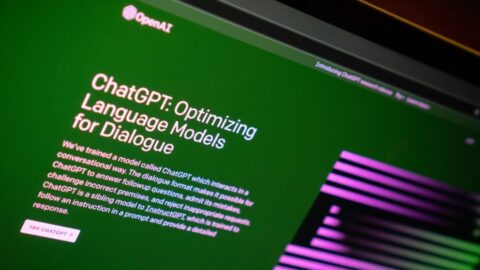AI OK?

St Catherine’s School’s culture of learning is realised by the professional expertise and development of our educators and staff. We are a community that embraces continuous learning. This approach is recognised as Strategic Intent Four in our School’s Towards 2025 Strategic Plan.
On Monday of this week our Barbreck Staff attended professional development on the use of Artificial Intelligence (AI), particularly the use of ChatGPT in the educational setting.
During the Professional Development, Mr Leon Furze, a highly qualified educator who is completing his PhD on Artificial Intelligence and Education, explored the capabilities and challenges of using AI. As this is a highly topical issue both within education and across many industries, I thought it would be of interest to our community to learn more about the benefits and limitations of AI.
In the area of education and general use, Furze explained AI mostly refers to an algorithm applied to huge amounts of data. AI then uses a large language model to process and generate text from the collected data. Just as when a person uses Google to find information, AI accesses every website to generate a report. However, unlike when we search the internet, carefully filtering with discernment for the most reputable sites, AI does not filter. It searches all available data on the internet, much of which is not accurate or appropriate.
AI is dependent on the skill of the user being able to accurately specify and identify the parameters the application must use to search for, and present the information gathered. Therefore, it is dependent on the user’s skill levels.
It is interesting to note that AI only accesses data prior to 2019, unless the user specifically enters the data themselves as part of the search/use parameters.
The concerns associated with the use of AI are many, but in the field of education include:
- Trusting the output of AI
- Cheating and academic integrity (intellectual property)
- Understanding the limitations of AI
Whilst AI has limitations it also offers many benefits in education for both teachers and students, including brainstorming ideas, and outlining, formatting, and editing uploaded notes.
What AI cannot do, however, is make judgements.
This is an important aspect of AI that we must understand. It cannot assess, give a rating or score and cannot make recommendations based on a submitted assessment. It will attempt to, using information it has gathered from the internet, but it cannot know the individual, their work or circumstance of the assessment.
An example of this would be asking AI for a diagnosis for a particular health concern. It would troll all the information from the internet and produce a diagnosis, but it would not be for the individual circumstance and could prove dangerous should a patient rely on stated information. All users of AI must first consider IF they should use AI and then how they could use it best, knowing its limitations. Users must be knowledgeable and highly discerning.
Schools and their governing bodies are moving quickly in this space to develop policies and provide information to staff and students on its correct and safe use.
The professional development our Staff participated in on Monday has equipped them with current and expert knowledge on navigating our girls through the effective use of AI as its influence continues to grow.


